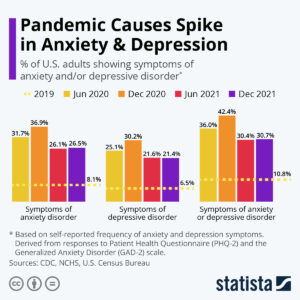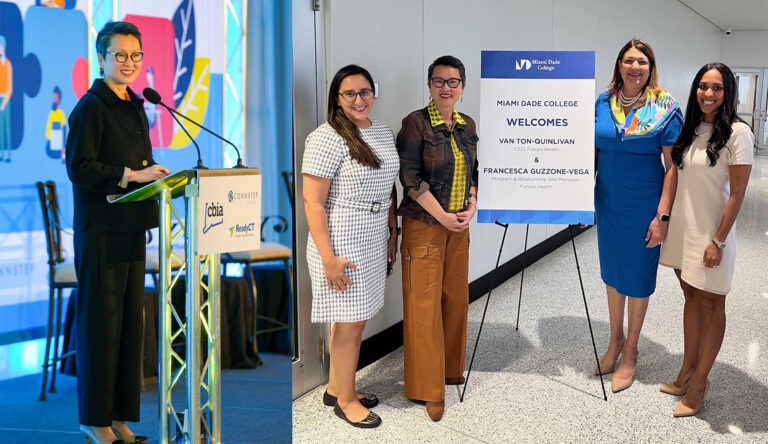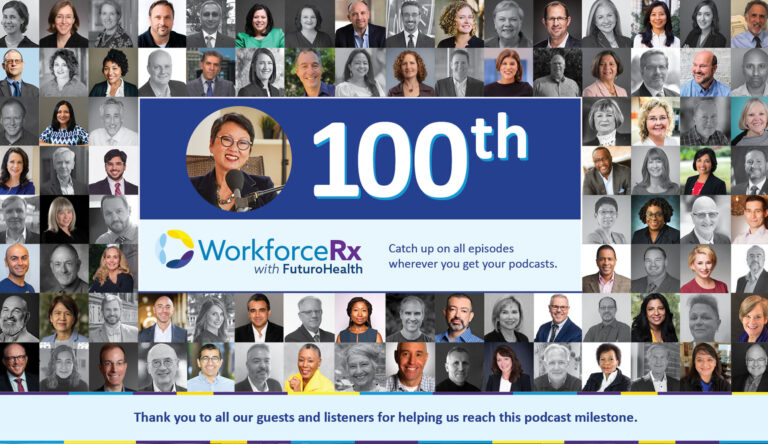Starting this July, legislation that passed in 2020 will begin changing how the vulnerable in California’s communities receive care. As outlined in Senate Bill 803 (SB 803), the state will now have established requirements for Peer Support Specialist training programs and set competencies for those workers. With the pandemic exacerbating mental and behavioral health issues, a coordinated approach to growing a paraprofessional workforce is a lesson in how to address a pervasive workforce gap.
SB803 recognizes Peer Support Specialists as a reimbursable service and establishes a statewide set of core competencies for training. The bill also opens the service to an additional reimbursement funding stream beyond billing Medicaid. While this has been a key priority for many Californian organizations and multiple versions of this bill were brought forth in the past, the question of who pays for the service had previously held up the progress of the legislation.
Before this legislation, Peer Support Specialists were hired using soft funds or acted as volunteers. Now that PSS services are reimbursable, financial support of these roles has become more concrete. This will mean that more people can and will use these services, explained John Cordova, RN, PHN, BSN, and Director of Workforce Development & Clinical Partnerships with Futuro Health. “We will see these roles expand in more clinics and community-based organizations and even some of the hospitals,” Cordova said.
Peer Support Specialists have lived experience with the process of recovery from mental health or substance use challenges and provide peer support for others experiencing similar issues. While Peer Support Specialists have existed within healthcare for years, SB 803 went a step further by validating the position and bringing the certification process to the state level.
“They’re better able to engage individuals,” said Lucero Robles, the Quality Assurance and Compliance Director for California Mental Health Services Authority (CalMHSA) of peers providing support to people who are in situations the peers themselves have lived through.
“As a social worker, my knowledge of mental health, the medical model, supporting people in the community, that’s what I bring to the table, but a peer brings their recovery, their journey themselves,” she said. “They’re using a lot of themselves in this.”
As Cordova explains, a PSS has the lived experience to tell someone in crisis that they know and understand what they are going through. A counselor can tell a patient to stop using drugs, but a former drug user can speak to their specific life experience. Lived experience is a key component in trauma-informed care for trauma like drug or alcohol abuse, and domestic violence.

The legislation will be fully implemented starting this summer, which comes at a time when the entire country is feeling the strain of two years of a pandemic, oftentimes at the cost of our mental health.
“The pandemic has been emotionally taxing on every person,” said Robles, who notes that there is and always has been a need for trained paraprofessionals in the field of behavioral health.
As the country also faces a national healthcare worker shortage with employers paying 2-3 times the cost for certain temporary traveler staff, nonprofit Futuro Health has uniquely stepped up to the plate to skill up more trained diverse workers. Futuro Health makes education journeys into allied health career possible by growing the talent that employers need and creating a path to opportunity that workers want. With the implementation of SB803, Futuro Health is going a step further to train Peer Support Specialists as one of the newly announced state-approved providers of this training – set to launched July 1st on the California Services Mental Health Authority website.
Policy and Best Practices Combine to Grow Much Needed Trained Workers
Not only is this legislation an opportunity to address existing healthcare workforce shortages but it is a reflection that peers bring value and experience to the table, said Toby Ewing, Executive Director, California Mental Health Services and Oversight Commission.
Ewing said that while it has been a struggle for years to build an adequate network of services, it has pushed the state to think more creatively about how we define care. Ewing said the legislation shows the state is embracing the perspective that lived experience is important – something the California Mental Health Services and Oversight Commission agrees with and will build upon. Ewing also emphasized that SB 803 ensures certification meets a standardized level of training.
In November 2021, the California Mental Health Services Authority (CalMHSA) and County Mental Health Plans scoped how SB 803 would be implemented. SB 803 established 17 core competencies for Peer Support Specialists. Instead of 58 behavioral health plans for each county, there will now be one standardized process across the state. Experts agree this standardization is key to streamlining the process for training providers. The Department of Health Care Services took the lead in establishing statewide training standards expected from the vendors chosen to provision the curricula.
Futuro Health Incorporates Workforce Best Practices to Ready the Future of Care
Futuro Health, having supported over 5,000 diverse adults tuition-free in pursuing their education for in-demand allied health roles including Medical Assistants, Health IT Specialists, and Patient Care Representatives, was named a state-approved training provider for Peer Support Specialist Certification. Futuro Health’s PSS online offering will include immediate start dates, rapid registration, and off-hour schedules, which will appeal to working adults, Cordova explained.
Futuro Health’s workforce solutions also combine adult-friendly education journeys, live touchpoints, and a scale that meets the state’s expansive geography. Eighty percent of Futuro Health’s students are ethnically diverse, averaging 30 years in age with 51% speaking more than one language.
“The pandemic expanded quality online education and virtual student support options that can be bundled in novel ways to develop interpersonal and technical skills,” said Van Ton-Quinlivan, CEO of Futuro Health. “Futuro Health and our partners combine best practices in workforce development so that employers and states can plug-and-play to accelerate their own endeavors.”
Futuro Health invites education institutions with online and hybrid degree offerings associated with in-demand mental and behavioral health roles to collaborate in building out career paths for upward mobility. Interested education institutions can email partnership@futurohealth.org.



